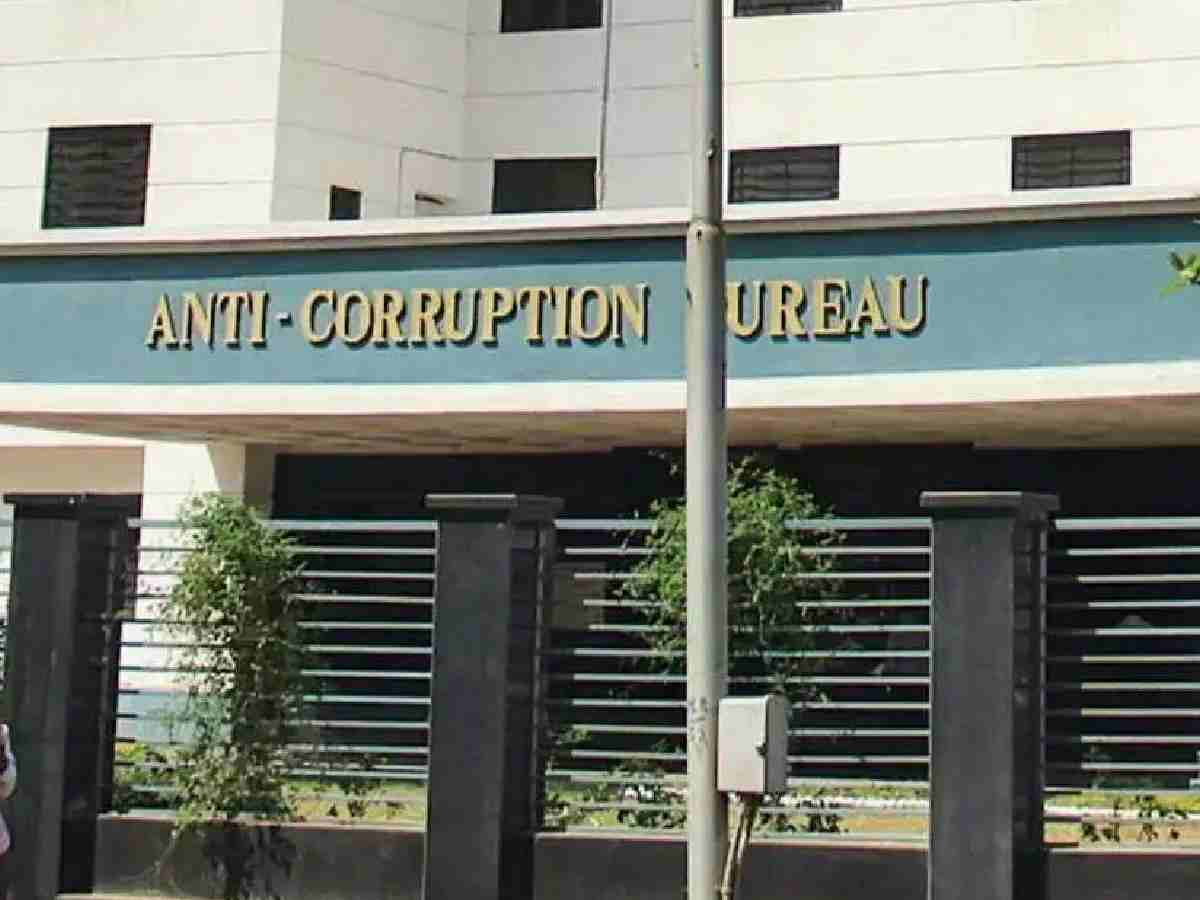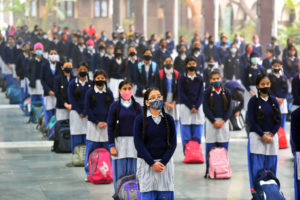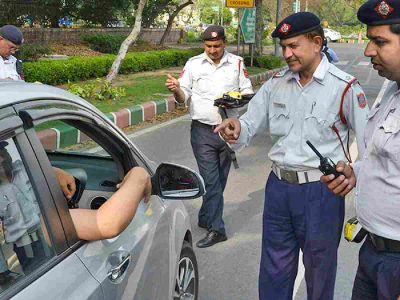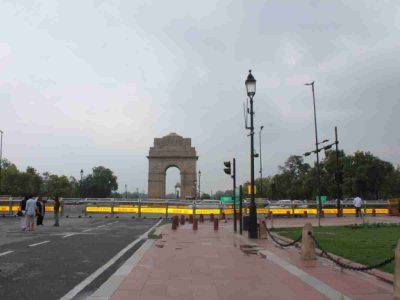A report by the Anti-Corruption Branch (ACB) of the Delhi government has unearthed a massive network of corruption allegedly involving officials of the Delhi Pollution Control Committee (DPCC) and the office of the Sub-Divisional Magistrate (SDM), Narela.
The report detailed gross misconduct, bribery, and administrative apathy — pointing to a deep-rooted nexus between government officials and touts.
The ACB investigation was triggered by multiple complaints and whistleblower inputs. These exposed irregularities in the sealing of industrial units for pollution violations, mishandling of child labour rescue operations, and the manipulation of official orders. A formal probe was subsequently initiated by the Directorate of Vigilance.
The initial report, submitted by the Deputy Commissioner of Police (ACB) on December 30, 2024, was formally taken up by the Directorate of Vigilance on February 13, 2025. The latter directed that an Investigation and Report (I&R) be initiated on priority. As a follow-up, the DPCC has issued notices to officers named in the ACB report, seeking formal responses within five days. However, even after three months, no action has been taken by the authorities, sources told Patriot.
Shocking irregularities in closure notices
One of the most startling revelations concerns the handling of closure notices issued under Section 31(A) of the Air (Prevention and Control of Pollution) Act, 1981. A total of 34 notices meant for polluting industrial units in Narela and Bawana were reportedly dispatched on May 27, 2024. But these critical documents were received at the SDM Narela’s office almost two months later, on July 15.
Allegedly, a private employee named Sakshi received these notices on June 20 — a clear violation of protocol. The documents were officially marked to Naib Tehsildar Anil Thakran only on July 16. The report termed this delay as evidence of “malafide intent.”
Also Read: Struggles behind the dream: Indian students abroad face reality checks
Field visits conducted during the probe revealed that most of the units slated for closure were still operating despite sealing orders. Entry of the notice receipt was made nearly two months late, casting serious doubt on the enforcement process.
Factory owners allege bribery, touts as middlemen
A major breakthrough came on December 10, 2024, when a factory owner, Ravinder Yadav from Bawana DSIIDC, alleged that a man named Manoj Sharma, acting as a middleman between DPCC and SDM officials, had demanded Rs 2 lakh to “settle” action against his unit. According to the report, Sharma had been functioning as a tout for years, collecting bribes on behalf of government officials.
Sharma was summoned by the ACB on December 27, 2024, and reportedly confessed to long-standing involvement in bribing DPCC officials. Sharma admitted being close to Arif Khan, a DPCC SEB official who was recently arrested by the CBI in another corruption case. He also disclosed links to Amit Tripathi, a DPCC clerk, and presented evidence of a Rs 30,000 transfer to Tripathi’s personal account.
The report noted that touts like Sharma had regular access to government offices and actively coordinated with officials to manipulate enforcement actions. This nexus allegedly allowed polluting units to remain operational despite repeated violations.
Child labour sealing operations falsified
The ACB also uncovered damning lapses in child labour enforcement. On August 6, 2024, 27 sealing memos were issued to industrial units in Narela and Bawana for employing child labour. While the SDM and Naib Tehsildar reportedly conducted enforcement and rescue visits, none of the units were sealed — contradicting official records.
Tehsildar Kuldeep Singh, when questioned, said the sealing memos were not found in office records and were instead in the personal custody of Anil Thakran. No records of fine payments or de-sealing were available either, suggesting deliberate manipulation.
Field visits confirmed that all the units continued operations as usual, with no legal action enforced — a further indication of deep administrative collusion.
Violation of government work allocation orders
The report also highlighted a clear breach of government work allocation protocols. An order issued by the Government of NCT Delhi on August 2, 2022, specified that only the SDM, Tehsildar, Labour Inspector, and Excise Inspector could handle excise-related matters.
Yet, on August 17, 2024, SDM Narela issued a separate work allocation order assigning excise responsibilities to Naib Tehsildar Anil Thakran. The ACB described this move as “unauthorised and suggestive of internal collusion.”
This pattern of concentrating multiple portfolios with select officials, the report noted, enabled them to manipulate field actions and enforcement outcomes in collusion with external agents.
Cosmetic demolitions and abuse of power
The ACB also flagged complaints regarding “cosmetic demolitions” carried out by Anil Thakran. A complaint by local resident Shakir Husain accused Thakran of conducting symbolic demolitions at illegal construction sites in Mamoorpur and Auchandi villages, including areas behind Johny Farmhouse on Safiyabad Road.
These demolitions were allegedly designed to give an illusion of action while leaving the core structures untouched. Husain appeared before the ACB on December 28, 2024, reiterating that such selective enforcement allowed illegal constructions to persist with impunity.
A systemic breakdown: Officials under scanner
The ACB’s concluding observations were scathing. The report cited repeated, deliberate non-implementation of official orders related to pollution, child labour, and encroachments. The pattern of inaction, missing documents, and delays, the report concluded, amounted to “criminal misconduct.”
“The malpractices including non-implementation of official orders in industrial areas, specifically on pollution matters and child labour, indicate that concerned officials are committing criminal misconduct,” it stated. “The lapses in enforcement are indicative of connivance between officials and touts.”
The role of Manoj Sharma, described as a “long-standing tout for DPCC,” was deemed central to the entire corrupt network. His role in connecting industrial unit owners with corrupt officials has become a focal point for deeper investigation.
Recommendations and next steps
The ACB has recommended that the unlawful activities and systemic lapses exposed in the report be taken up with the utmost seriousness. It urged higher authorities to initiate departmental and criminal proceedings against the officials involved.
In a formal note, Deputy Commissioner of Police Shweta Singh Chauhan stated: “The unlawful activities/lapses noticed during surveillance pertaining to the office of SDM Narela and DPCC are required to be taken up seriously. Kindly take necessary action under intimation to this office.”
With the ACB report now in the public domain, calls for accountability and a structural overhaul within DPCC and the SDM’s office in Narela are likely to intensify. Whether the Delhi government launches disciplinary action or a broader probe into institutional corruption remains to be seen.
Patriot reached out to the Delhi government, DPCC, and SDM Narela office for comment. However, all concerned authorities declined to respond.





